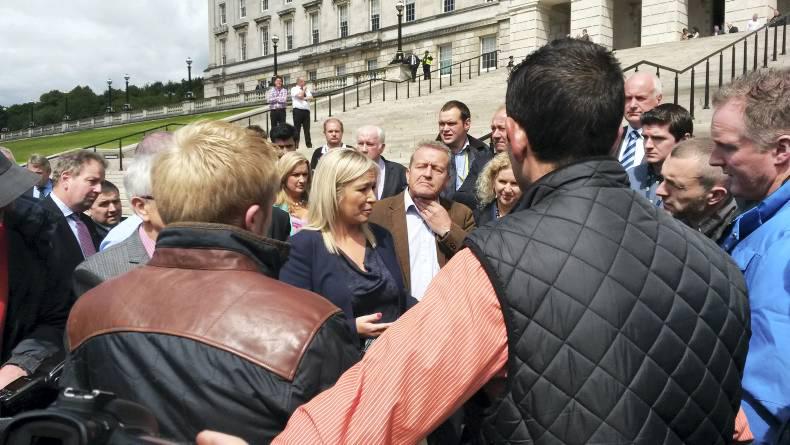If last week’s election is anything to go by, holding an agriculture brief at Stormont doesn’t always translate into votes.
Sinn Féin agriculture spokesperson Oliver McMullan lost out in east Antrim, as did his Ulster Unionist counterpart Harold McKee in south Down.
However, former agriculture minister Michelle McIlveen came home comfortably in Strangford, with the two previous incumbents in the job, Michelle O’Neill and Michelle Gildernew, elected with strong votes in mid-Ulster and Fermanagh and south Tyrone, respectively.
What happens next is anyone’s guess. There is the possibility that the Alliance party, the Ulster Unionists and the SDLP could potentially take their places in a new executive, with each party entitled to hold one ministerial position. That would leave the DUP and Sinn Féin with two each out of the first four allocated (or the DUP potentially with three, depending on how the Justice Ministry is handed out).
Opposition
If the SDLP, Ulster Unionists and Alliance again elect to go into opposition, we could have a similar situation as 2016, with the DUP holding four ministerial portfolios and Sinn Féin three (four each if Justice is included in the process).
Of course, without political agreement, some form of direct rule is possible, but for the NI agri-food industry that is not an ideal scenario. In fact, for the purposes of continuity, many in the industry will probably be hoping that Michelle McIlveen is returned to the DAERA post.
Alternatively, someone takes over with a good knowledge of farming and food. Potentially on that list could be the likes of Michelle Gildernew, Caoimhe Archibald, Edwin Poots, William Irwin, David Ford, Patsy McGlone or Robin Swann.
Whether any of them are in line for a ministerial role is another matter.
Whatever happens, it takes time for a new minister to gain an understanding of the wide range of issues facing agri-food, and given the urgency around Brexit negotiations, time is something we don’t have.






 This is a subscriber-only article
This is a subscriber-only article










SHARING OPTIONS: